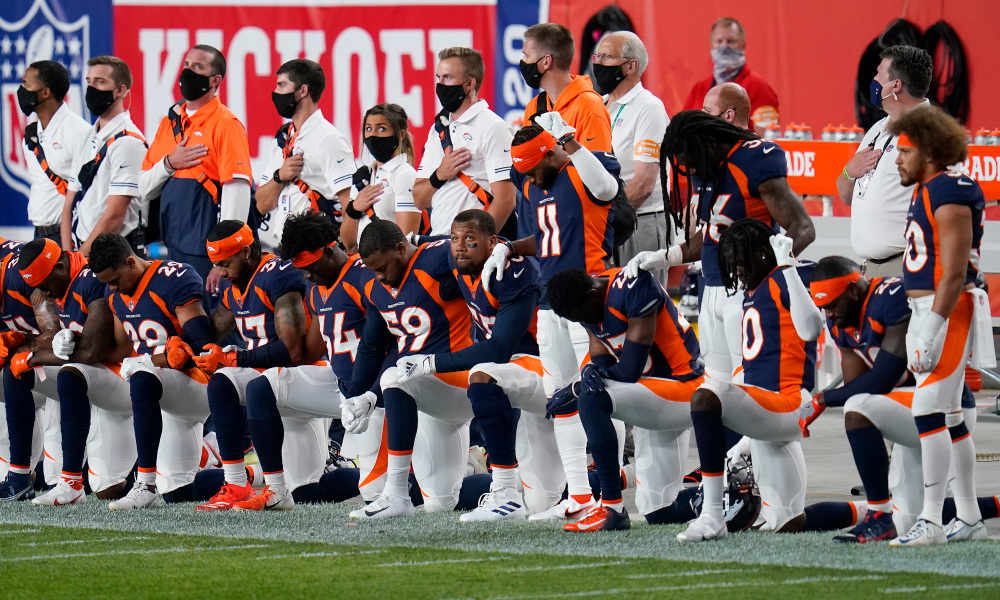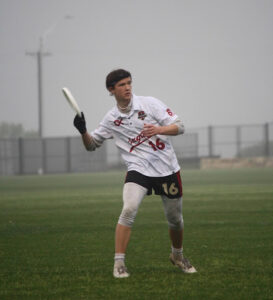In small-town Texas, a town will rally around three things an election, a fish fry, and high school football. The cliché of Texans worshiping the sport is no laughing matter, and some people base their entire lives around their days playing the sport or raising their kid to play. If given the choice to play football but sacrifice a vital limb or appendage in the process, many young men would not think twice about signing up to put on pads.
This effect bleeds over into college sports and professional leagues as well, with athletes being hailed as modern-day gladiators, the best of whom kids should aspire to be like. Many athletes choose to take this platform and use it to advance a cause for which they feel the passion. This in and of itself is not a bad thing, and many great achievements and changes have been a product of this gift. For example, Tommie Smith and John Carlos’ human rights salute at the 1968 Olympic Games brought national and worldwide exposure to the injustices felt by these men and their brethren.
Eric Liddell, a British sprinter, and Christian missionary refused to run a qualifying heat race on a Sunday because of his faith at the 1924 Summer Olympics in Paris.
In 1967, Muhammad Ali refused to go to war, choosing to burn his draft card, declaring that he had “no quarrel with those Viet Cong.” Ali was sentenced to a five- year prison term and a three-year boxing ban, which he avoided with an appeal and an overturned ruling by the Supreme Court.
Each of these causes can be viewed as noble and just, but an issue arises when the equal representation of opposing viewpoints is snuffed out.
The event in question occurred on Sept. 11, 2020, in Ohio at a high school football game. Two young men on the Little Miami High School football team were suspended for holding up the thin blue line and thin red line flags as they took the field.
Senior cornerback Brady Williams, who held up the thin blue line flag, was asked by the local media if he was trying to make a statement. He responded, “Not at all. I was just doing it to honor the people that lost their lives 19 years ago.”
Jarad Bently, who held up the thin red line flag, commented, “I was all for it, because my dad is a firefighter, and if it had been him killed on 9/11, I would have wanted someone to do it for him.”
The boys had asked permission from the school to fly the flags in honor of the people who had died at the terrorist attacks and those who came to their aid. They were denied and recieved suspensions after the game. They chose to fly the flags, not caring what the consequences were.
An immediate response could be to blow it off, saying the boys broke the rules, so they should be punished with suspension, or that they showed support for police officers, a group which much of the public is vilifying.
How is this any different than a man who broke the rules by burning his draft card? How is this different from an athlete who refuses to stand for the national anthem even though the team’s owner and fans rebuke and chastise him for it? How is this different from a man who refused to run on the Lord’s Day and was seen as letting down his fellow citizens.
It’s all in the message.
We are all guilty of refusing to recognize opposing viewpoints, choosing instead to only accept what is pleasing to our ears. We refuse to separate the person from the viewpoint, the job from the worker.
Police officers who are willing to protect us each day and put their lives on the line are defined by the sins and actions of the minority. Athletes are defined by the loudest one among them, no matter what they individually believe. Groups are defined by the past, something out of their control that has already been written in the annals of time.
Williams and Bently were reinstated on Sept. 15 after the school received backlash from people nationwide. The school concluded there was no political motivation behind the flags, just insubordination against the school.
Athletes today can protest police brutality, political groups, social injustice, and other political subjects and be praised as heroes. However, an athlete that “counter-protests” something that is not the mainstream narrative is suspended and canceled on a larger scale.
I pose these questions to the reader.
Should these young men or any athlete that speaks out be suspended?
Did the punishment match the crime?
Should athletes use their platform they were given due to their physical talents to push a cause?
Should the public continue to define people by similar characteristics or jobs by the worst among them?














Be First to Comment